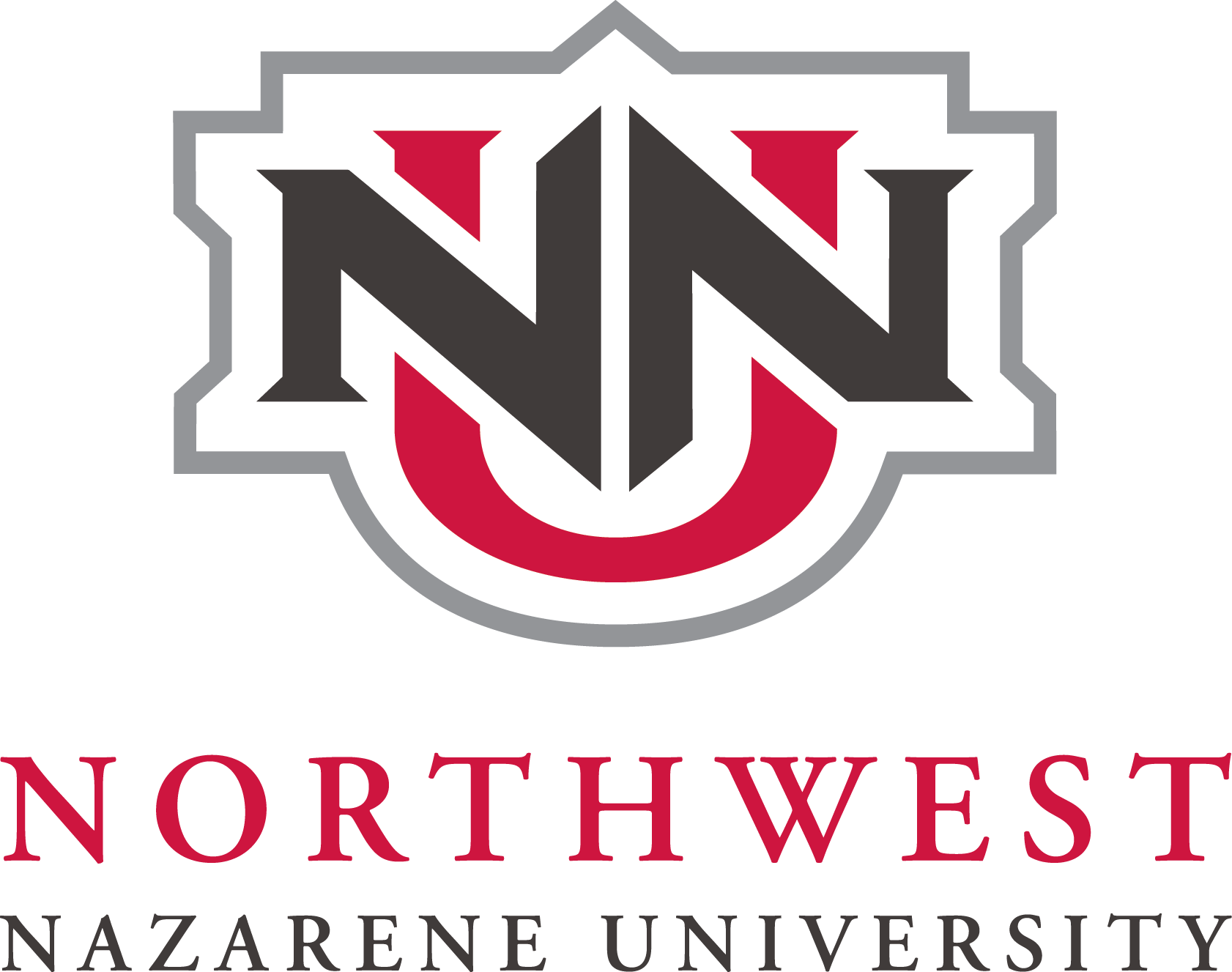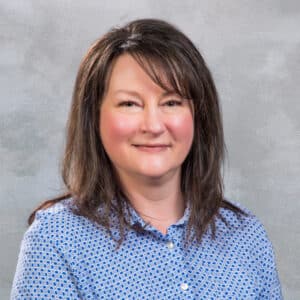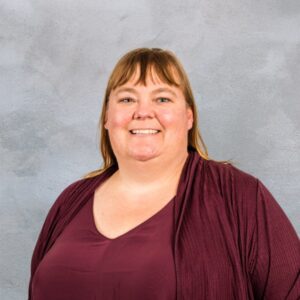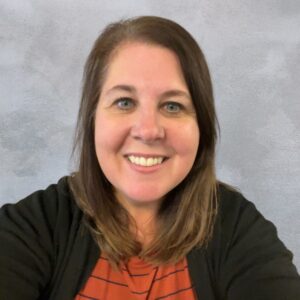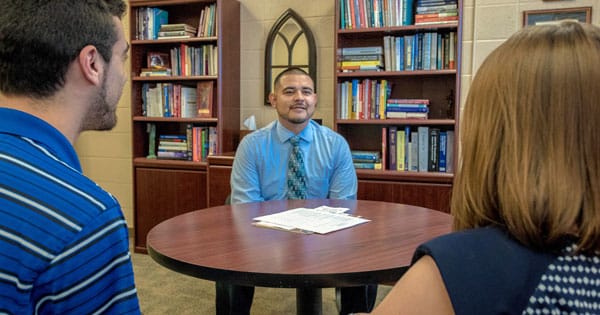Tammy McOmber
208.467.8853
mswinfo@nnu.edu
Social Work

- WORK closely with faculty instructors and mentors
- 98% placement rate for students into jobs in the field
- TWO START TIMES in the Fall and Spring allow you to start at the most convenient time for you
Make a Difference with a Master of Social Work
Are you looking for a way to make a tangible impact on the world around you? NNU’s Master of Social Work program is designed to equip you for advanced social work practice in rural and small-town settings, both domestic and international. Our cohort model creates an interactive learning environment that fosters collegiality and encourages professional relationships, though you do have the option to work individually. You can pursue your degree virtually or on campus with flexible weekend classes while maintaining your work and family responsibilities. With practicums built into the program, you’ll gain practical experience and make connections with local professionals.
Tuition Costs
In Person & Live Online
$598 per credit, $150 per semester technology fee
Fully Online
$623 per credit, $150 per semester technology fee
Delivery Methods
In Person
Face-to-face learning with a supportive cohort
Live Online
Complete coursework from wherever you are with live-streamed, interactive lectures and assignments
Fully Online*
Complete coursework on your own schedule in this fully online option designed to provide a high-quality, accessible MSW experience with maximum flexibility
*NNU’s fully online MSW is open only to those who earned a bachelor’s degree in a field other than social work.
The Benefits of a Master’s Degree in Social Work
- Two concentrations: Clinical Mental Health & Addictions and Integrated Clinical & Community Practice (ICCP)
- NNU’s MSW program is nationally accredited at the undergraduate and graduate levels by the Council on Social Work Education (CSWE)
- Learn from expert faculty and mentors with a 98% student job placement rate
- Offered virtually and on-campus in Idaho Falls and Nampa
- Enhance your career prospects with an MSW degree from NNU
- Utilize a cohort model that allows for interactive learning and builds relationships with peers
- Earn a graduate degree and be prepared to take the MSW licensing exam
- Benefit from classes offered weekends to accommodate work/family responsibilities
Goals and Outcomes for MSW Students
- Receive relevant training for advanced social work practice in rural or small-town settings, both domestically and internationally
- Build long-term professional connections with local professionals through MSW practicums
- Secure the necessary credentials to take the MSW licensing exam upon completion of the program
- Take advantage of on-site practicums to gain professional experience and grow your network of local contacts
- The goal of the Integrated Clinical & Community Practice concentration is to practice in one or more of these areas of social work simultaneously
- The Clinical Mental Health & Addictions concentration helps students understand how to practice in therapeutic settings
Additional Information About the Master of Social Work Program
Generalist Standing
Advanced Standing
An area of specialization is chosen after completing the Generalist year or entering the program at the Advanced standing level.
Concentrations
General Program: All students will complete the following courses:
- SOWK7630: Policy Issues in Rural America
- SOWK7645: Practical Research
- SOWK7620: HBSE: Diversity
- SOWK7616: Beyond the DSM
- SOWK7622: Social Work and Spirituality
- Elective Credits: 2 credits
- SOWK7690: Capstone OR SOWK7642: Completion of Thesis
- SOWK7691: Specialist Comprehensive Exam
Clinical Mental Health & Addictions Concentration
This concentration prepares students to provide psychotherapy and addiction services for individuals, families and groups in rural and small-town settings. Specific content on trauma-focused practice is included, in addition to content on macro practice in community mental health or addiction settings. This concentration aims to help students understand how to practice in therapeutic settings, whether working with clients with mental health concerns, addiction issues or a dual diagnosis.
Field placement opportunities for students in this concentration include private therapy offices, community mental health centers, inpatient mental health and/or addiction treatment settings, substance abuse clinics, drug courts and co-occurring mental health and addiction treatment.
Integrated Clinical & Community Practice Concentration
This track aims to combine training in various fields of practice for students interested in clinical or macro MSW practice but not in psychotherapy. The track will include content on child welfare, medical and criminal justice at the micro and mezzo levels and macro practice. This concentration aims to help students understand how to practice in one or more of these areas of social work while also appreciating the other systems with which their clients are likely to interact.
Field placement opportunities for child welfare include public and private child welfare agencies, juvenile justice programs, court settings, schools and foster care/adoption agencies. Field placement opportunities for healthcare include dialysis centers, emergency rooms, community health clinics, home health and hospice agencies and hospitals. Field placement opportunities for criminal justice include county, state and federal jails/prisons, juvenile justice programs and court settings. Students interested in macro practice can experience field placement opportunities in almost any setting. Specific agencies providing macro opportunities include the VA, local hospitals, Salvation Army and Health and Welfare.
Internship Expectations: Students in this track will complete 600 hours of practicum. A student can choose to complete all 600 hours in one area of practice or split hours between two areas of practice. Ideally, all 600 hours should be completed in the same agency, but certain circumstances may warrant allowing a student to complete placement hours at two agencies.
Accreditation
Northwest Nazarene University’s MSW program is nationally accredited at the undergraduate and graduate levels by the Council on Social Work Education (CSWE).
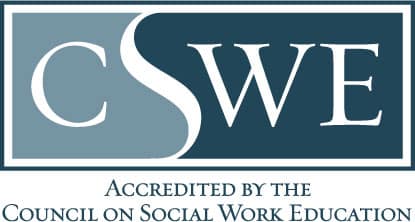
Notice to Out-of-State Students
Since this program leads to professional licensure, prospective students should review important information about NNU’s participation in the National Council of State Authorization Reciprocity Agreements (NC-SARA) and Professional Licensure about this program. Individual states often have different expectations for professional licensure, so it is in a prospective student’s best interest to investigate whether NNU’s degree program will help them achieve licensure in their home state.
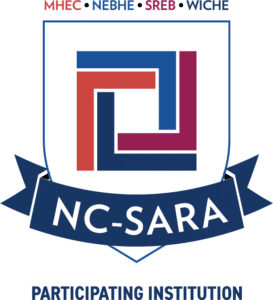
Assessment of Student Learning Outcomes
Plan of Study
Explore the Master of Social Work (MSW) plans of study to find the path that best fits your goals. Each plan outlines the required courses and timeline for completing your degree.

Possible Career Paths with a Master in Social Work
With a master’s degree in social work, you can take on roles in hospitals, schools community development, public health, government agencies and even private practices. Whether you work with children, families or individuals struggling with addiction, the knowledge and skills gained through a MSW programs will prepare you to tackle any challenge.
Child, Family and School Social Workers
Community and Social Service Occupations
Social and Community Service Managers
Clinical Social Worker
Meet the Team
Frequently Asked Questions About the MSW Program at NNU)
Join the Master of Social Work program at Northwest Nazarene University and make a meaningful impact in your community! Delve into the program’s details with these frequently asked questions to gain a comprehensive understanding.
How will the Master of Social Work program prepare me for advanced practice?
At Northwest Nazarene University, our Master of Social Work (MSW) program is designed to empower students for advanced social work practice. It equips them with the necessary skills and knowledge to make a transformative impact in rural and small-town settings, domestically and internationally.
Our MSW program prepares students with the competencies and practice behaviors needed for advanced social work practice through a comprehensive curriculum that combines foundational classes with advanced courses. You can choose from two concentrations: Clinical Mental Health & Addictions and Integrated Clinical & Community Practice. These concentrations allow you to focus your studies and develop expertise in areas that align with your passion and career goals.
NNU’s MSW program focuses on helping individuals, families and communities, focusing on empowerment and social justice. We provide specialized knowledge and training in assessment, evidence-based interventions, policy and management techniques. This prepares you to work effectively with diverse populations, navigate complex social systems, and advocate for meaningful change.
Field education is a vital component of our MSW program, providing you with hands-on experience in real-world settings under the guidance of experienced professionals. Through field placements, you will have the opportunity to apply classroom learning, develop advanced practice skills and cultivate relationships within the community.
By completing NNU’s Master of Social Work program, you will be prepared to engage in advanced social work practice in rural and small-town contexts. Our program equips you with the tools to address the unique challenges and opportunities in these settings, empowering you to make a positive and lasting difference in the lives of individuals, families and communities.
Choose NNU’s MSW program to embark on a transformative journey that combines academic excellence, practical experience and a commitment to social justice. Join our community of dedicated social work professionals and become equipped to create meaningful change.
How is the learning environment structured to encourage collaboration and build professional relationships?
We believe a collaborative and supportive learning environment is essential for students pursuing their Master of Social Work (MSW) degree. We have carefully structured our program to foster collaboration and build professional relationships, ensuring our students thrive academically and personally.
One of the key features of our MSW program is the utilization of a cohort model. This means students progress through the program together as a tight-knit community, sharing experiences, knowledge and insights. The cohort model creates an interactive learning environment where students can collaborate, engage in meaningful discussions and support one another throughout their coursework. This sense of collegiality enhances the learning experience and builds lasting professional relationships that extend beyond the program.
In addition to the cohort model, our MSW program provides students with valuable professional experience through practicums. These practicums offer hands-on opportunities for students to apply their classroom learning in real-world settings, working alongside local professionals in social work. These experiences deepen students’ understanding of the profession and allow them to establish connections and build relationships with experienced practitioners. Through these relationships, students gain mentorship, guidance and networking opportunities that can be invaluable as they transition into their careers.
We understand the importance of collaboration and professional relationships in social work at NNU. By creating a supportive and interactive learning environment through the cohort model and providing practical experience through practicums, we ensure that our MSW students have the opportunity to cultivate those crucial connections that will serve them well throughout their careers.
Choose NNU’s Master of Social Work program and join a vibrant community that values collaboration, fosters professional relationships, and empowers you to make a lasting impact in the field of social work.
What flexibility does NNU's MSW program offer to meet my work and family needs?
Pursuing a Master of Social Work (MSW) degree is a significant commitment, especially for individuals with work and family responsibilities. That’s why our MSW program offers flexibility to meet the diverse needs of our students, ensuring that they can balance their academic pursuits with their personal and professional obligations.
One of the key ways in which our in-person and online MSW program provides flexibility is through our class schedule. With classes offered online and on-campus in the evenings and on weekends, this program is designed to accommodate the busy schedules of working professionals and individuals with family commitments. This scheduling flexibility allows students to continue their work or take care of family responsibilities while pursuing their MSW degree, eliminating potential barriers to advancing their careers.
Additionally, our MSW program offers a variety of learning formats to cater to different learning styles and preferences. These include in-person classes, online courses and hybrid options, allowing students to choose the format that best suits their needs and circumstances. This adaptable approach to learning ensures that students can engage with the program in a way that aligns with their work and family commitments.
Furthermore, NNU’s MSW program recognizes the importance of practical experience in social work education. To accommodate students’ work and family needs, we offer field practicum placements that can be tailored to individual schedules and locations. This flexibility allows students to complete their practicum requirements within their local communities, minimizing the need for extensive travel or relocation.
At NNU, we are committed to supporting our students in achieving their educational goals while maintaining a healthy work-life balance. Our MSW program’s flexibility in scheduling, learning formats and field practicum placements ensures that students can pursue their academic aspirations while fulfilling their work and family responsibilities.
Choose NNU’s MSW program to embark on a transformative journey that combines flexibility, academic excellence and a commitment to social work. Join our inclusive community and take the next step towards advancing your career while maintaining a fulfilling personal life.
Is there an opportunity to gain practical experience with practicums built into the program?
Absolutely! At Northwest Nazarene University, we believe in the transformative power of practical experience. That’s why our Master of Social Work (MSW) program provides students with valuable opportunities to gain hands-on experience through practicums built into the program.
The MSW practicums are integral to our curriculum, allowing students to apply their classroom learning in real-world direct practice social work settings. Through these practicums, students work under the supervision of skilled professionals in social service agencies, providing them with valuable mentorship and guidance as they navigate the complexities of the field.
We understand the importance of gaining practical experience for professional development and building strong connections within the social work community. The practicum experiences enable students to develop relationships with local professionals, creating networks that can be invaluable for future career opportunities.
NNU is proud to have a strong network of partner organizations and agencies that provide exceptional practicum placements for our students. These placements offer diverse experiences, allowing students to work with individuals, families and groups in various settings, including rural and small-town communities.
By participating in these practicums, our MSW students gain a deeper understanding of the challenges and rewards of clinical practice. They learn how to apply evidence-based interventions, navigate complex systems and advocate for meaningful change in the lives of the individuals and communities they serve.
At NNU, we believe that practical experience is an essential component of becoming an effective social worker. Through our MSW program’s built-in practicums, you will have the opportunity to gain hands-on experience, develop professional skills and build relationships that will support your journey toward becoming a competent and compassionate social work practitioner.
Choose NNU’s MSW program to embark on a transformative educational experience that combines academic excellence with practical, real-world learning opportunities. Join our vibrant community of social work professionals and make a lasting impact in the lives of individuals, families and communities.
